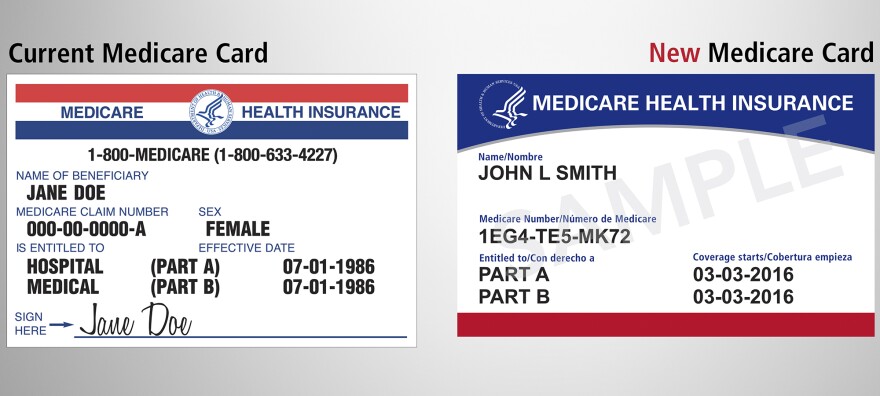It's an administrative task for the ages.
Medicare is getting ready to issue all 60 million of its beneficiaries new cards with new ID numbers as way to combat identity theft and fraud.
The rollout begins next April, but the agency is already beginning its outreach campaign.
"We want to make this process as easy as possible for everybody involved," said Seema Verma, the administrator of the Centers for Medicare & Medicaid Services, on a conference call Thursday.
The agency has set up a website, is sending out handbooks to all enrollees, and has call centers ready to answer questions from beneficiaries and doctors.
Until now, Medicare used people's Social Security numbers. But Congress in 2015 passed a law requiring the agency to change that as a way to protect seniors from identity theft. The new identifiers will be a randomly generated sequence of 11 numbers and letters.
"Changing numbers for nearly 60 million people on Medicare may be a hassle, but it's a good idea given the bigger hassles that come with identity theft," says Tricia Neumann, director of the Program on Medicare Policy at the Kaiser Family Foundation.
AARP has long advocated for the change because of concerns that seniors' identities would be stolen. The group actually advises seniors not to carry their original Medicare card but only a copy with the last four digits of their Social Security number blotted out.
Congress allocated $242 million for the switchover, spread across four fiscal years.
During the transition to the new cards, "Medicare beneficiaries don't need to do anything, other than look out for scams," said Andrew Scholnick of AARP's Federal Health and Family Team.
Verma says the new cards will begin to be mailed next April, and the transition will continue into 2019.
Copyright 2020 NPR. To see more, visit https://www.npr.org.



